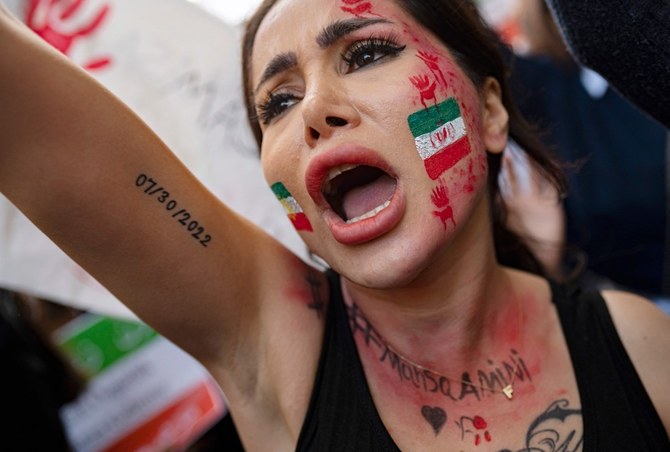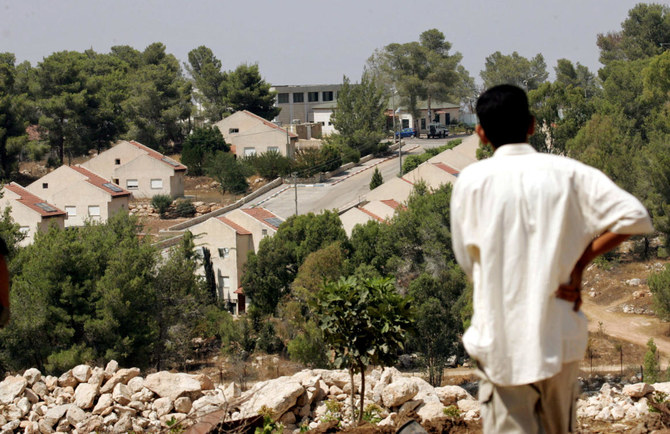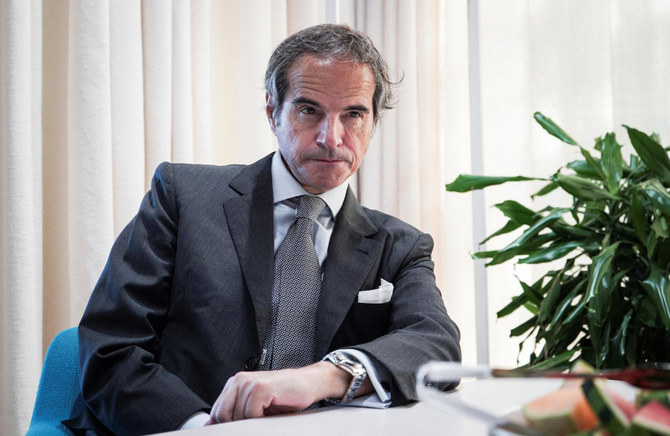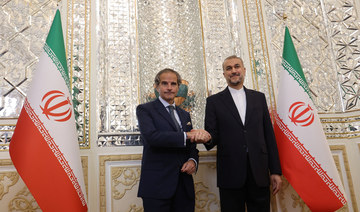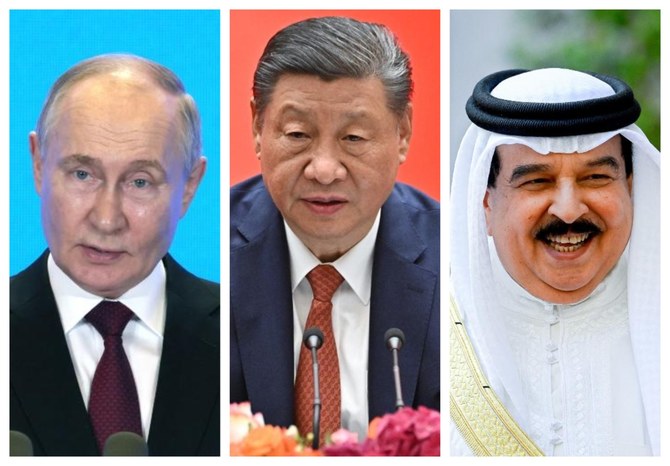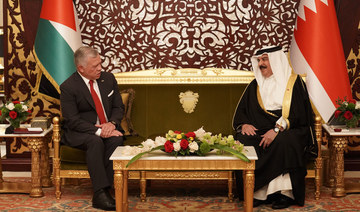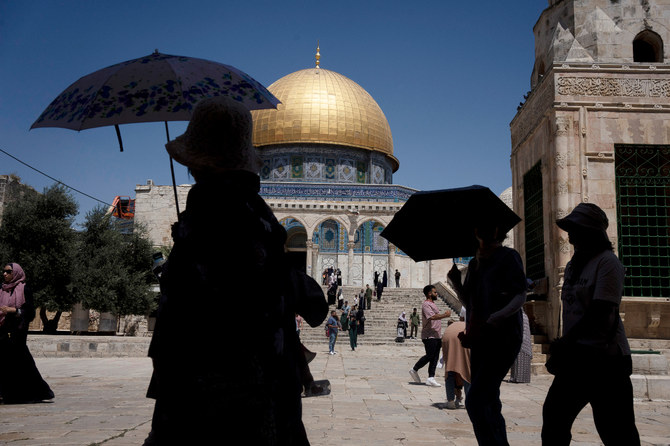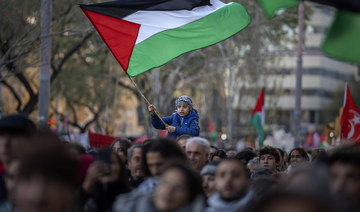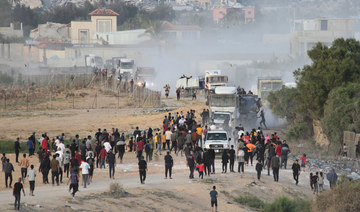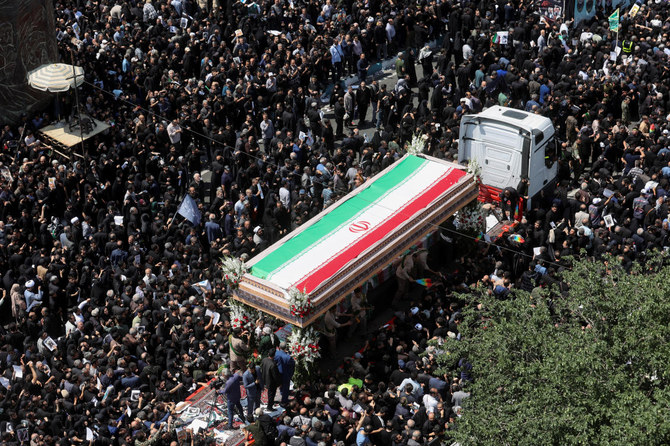NEW YORK CITY: The protests in Iran over the death in police custody of Mahsa Amini mark the latest chapter in a long history of public demonstrations that have rocked the Islamic Republic since 1999.
All have been met by brutal regime crackdowns that left many people dead or injured and thousands of political prisoners behind bars.
Students took part in widespread and violent protests in July 1999, for example, and returned to the streets four years later demanding justice for those killed and injured during the previous demonstrations.
The election of Mahmood Ahmadinejad in 2009 sparked turmoil that continued well into 2010 and erupted again the following year and in 2012. More recently, an ongoing series of political movements, acts of civil disobedience, online activism and demonstrations took place between 2017 and 2021.
But the continuing protests over the death on Sep. 16 of Amini, who had been arrested three days earlier for not following strict rules on head coverings, represent a seminal moment because it is “an uprising of young people, very young people, teenagers, young women,” according to Irene Khan, the UN special rapporteur on the promotion and protection of the right to freedom of opinion and expression. As a result, she said, the Iranian authorities might well be facing a different situation now that they have in the past.
“The issue was sparked by women’s expression,” Khan told Arab News. “Whether you wear a hijab or not is a woman’s right to expression.”
In her reports, including the latest one presented to the General Assembly this month, Khan tirelessly highlights ways in which women’s rights of expression are suppressed by culture, custom or politics.
“And what we see in Iran is a reaction against that kind of suppression, where young women are now saying, ‘We will not allow our rights to be suppressed in the same way that our mothers’ and our grandmothers’ rights have been suppressed,’” she said.
Another difference with the current protests, Khan said, is that there is growing access to digital technology that is more powerful than ever. Some online platforms have gone out of their way to make it as easy as possible for civilians in Ukraine to access and use information, for example, and Khan has recommended to the General Assembly that that similar commitment to the use of technology to preserve human rights be adopted and applied across the board worldwide.
“In Iran, platforms, social media, digital technology is playing a very important role,” she said.
SPOTLIGHT
Why Iran’s ethnic minorities are bearing the brunt of violent regime crackdown on protests
“Take that, (along) with what’s happening with young women, take the whole issue of youth unemployment, youth frustrations, and the Iranian authorities may be facing a different situation now than in the past.”
Khan said her message to Iran’s leaders is plain and simple: “Stop violating people’s rights. People have the right to peaceful protest. Women have the right to wear a hijab or not wear a hijab. I have said that for a long time.
“These issues of fundamental freedom of expression, of human dignity, of women’s autonomy over their own bodies, should be left to them to decide and the government should do the right thing and follow the human rights standards.”
In 2009, the UN General Assembly issued a resolution condemning human rights violations committed by the Iranian regime. Fact-finding missions have taken place to monitor the violations and compile evidence in the hope that one day the world would be able to hold the perpetrators to account.
UN spokesperson Stephane Dujarric told Arab News that human rights mechanisms have been activated in Iran and that Secretary-General Antonio Guterres is following the situation there “very carefully.”
However pressure is nonetheless growing on the UN to take an even stronger stance on what is happening in Iran in terms of human rights, amid warnings that the situation continues to worsen by the day.
Khan told Arab News that although certain rules and regulations prevent experts such as herself from making all information public, and despite the fact that authorities in Iran will not allow the UN special rapporteur to visit the country, “we are certainly working very hard behind the scenes — and very soon, publicly — to put as much pressure as possible to ensure that people can protest peacefully within their rights.”
She added: “For us, because we’re appointed by the (Human Rights) Council we have a code of conduct that says we have to inform the government (of Iran) before we publish something. We have published certain things about the Mahsa Amini case. We are going to do more. We’d like to do more.
“So in a way, the mechanisms have been activated for a while. The question is, what more is needed in a situation where there are mass violations taking place and where the country of origin has not allowed the special rapporteur to visit, for example. So in a way, you know, we have a problem here.”
But as investigations take place and evidence is compiled, does she believe that anyone will ever be held to account for the crimes committed against the people in a country such as Iran, where the authorities frequently resort to violent crackdowns against dissent that have left hundreds dead, thousands injured and thousands more in jail.
Opinion
This section contains relevant reference points, placed in (Opinion field)
“I wish (the accountability) would happen today,” she said. “I take strength from the fact that there have been situations that have taken decades — but accountability is extremely important.
“The UN has many different tools; it needs to use them. Increasingly there are commissions of inquiries being set up. There are special types of rapporteurs being built. So there’s a lot of innovation that is going on there.
“The key lies not in the innovation, it lies in the political will of governments — and triggering the political will is the key. And that is where it requires much more than the UN system.”
She added: “Media, for example, plays a huge role. Digital technology has opened up new doors, information flow, empowering people; now you can see young people in Iran rising up. There are many different ways.
“I recommend a lot of community development in my reports as well, from the grassroots up. So a lot of things have to happen in this multistakeholder, multifaceted, very complex world but we shouldn’t lose hope.”
Special rapporteurs are part of what is known as the special procedures of the UN Human Rights Council. They are independent experts and work on a voluntary basis. They are not members of the UN staff and are not paid for their work.
Khan, a Bangladeshi lawyer who previously served as secretary-general of Amnesty International, became the first female special rapporteur for freedom of expression and opinion when she was appointed in August 2020.




